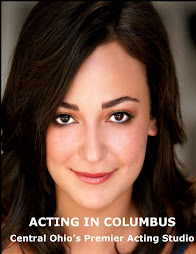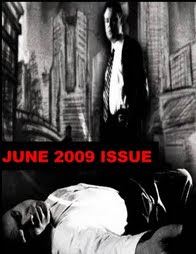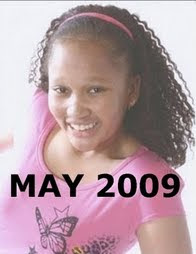As an actor, your resume is one of the most critical tools in helping you get work. It helps a casting director understand not just your experience, but the type of work you're interested in, the skills and training you bring to a project, and your goals as a performer. It, along with your headshot, is a critical first step to getting into the rroom to audition.There are many different formats out there for acting resumes, and this guide is not intended to convey a "one true way." Rather, this will help you make informed decisions about your resume choices, so that everything you say with it is intentional. Here are five tips to help you start a resume, or refine the focus of your current one.
Be sure not to forget the basics. List your name prominently, your contact information (email address and a phone number, but do keep safety in mind - never list a home address and consider using a service for voicemail), your union status, the age-range you play, your height and basic measurements or sizes. When it comes to ages and sizes, be accurate. Nothing turns a casting director off more than bringing in someone they thought was perfect, who is nothing at all as advertised.
Break your credits up into sections - include seperate areas for film and stage work. Lead with the one that has the most impressive credits or the one you are most interested in pursuing. When you have more credits, consider creating a seperate resume for each, or maintaining two combined resumes (this is more common in New York City than in Los Angeles), leading with a different category depending on the job you are submitting for. Other credit categories that may be applicable include "television," "industrials" and "print." For each credit list the name of the production, the name of your role, and the production or theatre company. You may also wish to note the director, the theater, and the nature of the role (i.e., "lead", "supporting", "featured", "under 5"). Do not list background work. People do it all the time, but it is anything but a help to them. Within a section, credits should be listed chronologically, starting with the most recent.
Include a section for "training." Include acting courses, and courses in other skills directly useful to the actor - voice, singing, dance, movement, stage combat, etc.
Create a section for "special skills." This section should include anything you can conceive of a character doing on stage or screen, and that you do well enough to be paid to do. Some good examples of special skills include sports, specific types of dance, languages, craft hobbies, accents, skills with animals and potentially relevant workplace experience. This is also a good place to list whether you have a driver's license, a valid passport and/or an academic degree (be sure to note your major). This is also the part of your resume where it's okay to get a little creative, as this section can often lead to additional discussion int eh audition room. And the longer they want to keep talking to you, the better it is.
If you're just starting out, or have recently completed school, you should feel comfortable listing productions you were in, in school. As your credits improve, don't make your font tinier, but remove older, less relevant credits from your resume. Readability and accuracy should always be your prime goals.
Good luck!
skip to main |
skip to sidebar


PHOTO: Acting in Columbus student Ben K.


PHOTO: SHARI LEWIS, DISPATCH

ACTING IN COLUMBUS is a professional training studio in Columbus, Ohio which offers small and practical acting classes in a supportive yet challenging environment.
WELCOME TO ACTING IN COLUMBUS

Acting in Columbus is a professional training studio in Columbus, Ohio which offers small and practical acting classes in a supportive yet challenging environment. We offer classes for adults in Scene Study, On-Camera, Improv, Acting for Film and Master classes. We're also offering an On-Camera Workshop for young performers and their parents. With our small class sizes; you receive personal attention from our faculty - all working, professional actors and directors.
WHY ACTING IN COLUMBUS?

PHOTO: Acting in Columbus student Ben K.
Prospective students frequently ask us what differentiates us from other acting classes. We answer that question by sharing what kind of work our students are booking. Your acting class will consist of no more than 12 students who will discover together that acting is probably the most challenging and thrilling thing they've ever done.
What we do, we do very, very well!
CONTACT US:
TERMS YOU SHOULD KNOW

A.D. - The Assistant Director.
AD LIB - Extemporaneous delivery without relying on a prepared script.
AEA - Actors’ Equity Association; also called “Equity”. SAG’s sister union which represents stage actors.
AFTRA - American Federation of Television and Radio Artists. Represents radio artists and news broadcasters, and, in earlier times, television performers. In more recent times, however, television performers may be represented by either AFTRA or SAG, depending on the producer’s contract. Discussions about merging the two organizations have been ongoing for several decades; recent Television & Film and Commercial Contracts have been jointly negotiated.
ART DIRECTOR - Person who conceives and designs the sets.
BLOCKING - The actual physical movements by performers in any scene. Also can refer to the movements of the camera.
BLUE SCREEN - Shooting in a studio against a large blue or green backdrop, which allows a background to be superimposed later on the final image. The actors must imagine the set they are on and be aware of the limitations of their movements. Casting Workbook’s Audition studio in their Vancouver location is a Blue Screen.
BREAKDOWN - A summary description of a script prepared by or for the casting director often including the names of the director, producer, network or studio, together with audition location and times, storyline and roles available for casting in a production. These are, and have traditionally been, provided only to qualified talent agents.
CALL SHEET - A sheet containing the cast and crew call times for a specific day’s shooting. Scene numbers, the expected day’s total pages, locations, and production needs are also included.
CALL TIME - The actual time an actor is due on the set.
DAY PLAYER (DAY PERFORMER) - A principal performer hired on a daily basis, rather than on a longer - term contract.
D.P. - Director of Photography or Cinematographer.
HERO (BOY, GIRL, MAN, WOMAN) - Unassumed Lead in a commercial where the lead isn’t prominent, but most important.
INDUSTRIAL - Non-broadcast film or video, usually of an educational nature
AD LIB - Extemporaneous delivery without relying on a prepared script.
AEA - Actors’ Equity Association; also called “Equity”. SAG’s sister union which represents stage actors.
AFTRA - American Federation of Television and Radio Artists. Represents radio artists and news broadcasters, and, in earlier times, television performers. In more recent times, however, television performers may be represented by either AFTRA or SAG, depending on the producer’s contract. Discussions about merging the two organizations have been ongoing for several decades; recent Television & Film and Commercial Contracts have been jointly negotiated.
ART DIRECTOR - Person who conceives and designs the sets.
BLOCKING - The actual physical movements by performers in any scene. Also can refer to the movements of the camera.
BLUE SCREEN - Shooting in a studio against a large blue or green backdrop, which allows a background to be superimposed later on the final image. The actors must imagine the set they are on and be aware of the limitations of their movements. Casting Workbook’s Audition studio in their Vancouver location is a Blue Screen.
BREAKDOWN - A summary description of a script prepared by or for the casting director often including the names of the director, producer, network or studio, together with audition location and times, storyline and roles available for casting in a production. These are, and have traditionally been, provided only to qualified talent agents.
CALL SHEET - A sheet containing the cast and crew call times for a specific day’s shooting. Scene numbers, the expected day’s total pages, locations, and production needs are also included.
CALL TIME - The actual time an actor is due on the set.
DAY PLAYER (DAY PERFORMER) - A principal performer hired on a daily basis, rather than on a longer - term contract.
D.P. - Director of Photography or Cinematographer.
HERO (BOY, GIRL, MAN, WOMAN) - Unassumed Lead in a commercial where the lead isn’t prominent, but most important.
INDUSTRIAL - Non-broadcast film or video, usually of an educational nature
ACTING FOR KIDS: TV, FILM and COMMERCIALS Eight-Week Fall Intensive
Saturdays, beginning January 16, 2010 10:00am-12:00pm. $150
This eight-week on-camera intensive is designed to enable the actor to handle commercial auditions, film and TV sides, scenes, and monologues for film. Working with the camera, actors will break down scenes to discover the humor, emotional moments, pacing, beats and more.
The class will also explore the fundamentals of film and commercial auditioning, including slating and how to interview effectively, while exploring the entire audition scenario. The class will focus on strengthening performances and working with confidence in front of the camera during cold readings as well as prepared sides.
All exercises and scenes are video-taped with playback critiques an essential part of class time. All students will receive a DVD DEMO REEL of their work at the conclusion of this workshop.
The class will also explore the fundamentals of film and commercial auditioning, including slating and how to interview effectively, while exploring the entire audition scenario. The class will focus on strengthening performances and working with confidence in front of the camera during cold readings as well as prepared sides.
All exercises and scenes are video-taped with playback critiques an essential part of class time. All students will receive a DVD DEMO REEL of their work at the conclusion of this workshop.
ACTING FOR FILM EIGHT-WEEK SCENE STUDYJanuary 20, 2010 7:00pm-9:30pm $200
This class offers a focused introduction to the acting process. Beginning actors work, stage, and shoot several film scenes during the eight-week session. We work in depth on concepts central to the actor's role development for film. We use Shurtleff's 12 Guideposts as our basic text to help students make strong choices with a wide variety of scenes and monologues. Your ability to make active, personal choices is essential for dynamic auditions and performances for stage and film.
Advanced Acting for Film - Tuesdays beginning January 19, 2010 7:00pm-9:30pm $200
Here is your opportunity to take on more challenging scenes. To work with people who are serious about the work. This is an on-going, eight-week course designed to stretch your skills. Actors work, stage, and shoot several film scenes during the eight-week session. Scripts from soaps, sitcoms, dramatic TV and film are used. This is an on-going on-camera scene class. Actors receive a new scene each week to be prepared but not rehearsed in order to most closely reproduce the working situation in TV and Film.
Intermediate and Advanced level actors - Audition May be Required.
Your final scenes will be screened for area Agents and Casting Directors.
Intermediate and Advanced level actors - Audition May be Required.
Your final scenes will be screened for area Agents and Casting Directors.
ACTING IN COLUMBUS - featured in the Columbus Dispatch

PHOTO: SHARI LEWIS, DISPATCH
Richard Mason, at back, watches Brian Willis, left, and Mohamud Muhidin perform in his class "Acting for TV Commercials" at the Ohio Theatre. The class included Renee Beall, front center, Andy Kramer, center, and Alphonso Sanders.
Acting for TV Commercials preps aspirants for the small screen. Sunday, January 18, 2009 3:24 AM By Nick Chordas THE COLUMBUS DISPATCH
It wasn't how Dwight Pigg expected to spend his 45th birthday -- staring at a fixed point on the wall and extolling the virtues of a glow-in-the-dark remote control. "No more fumbling around. And it glows in the dark. Glows in the dark! And here's the best part -- it's only $19.95!"The exercise was part of "Acting for TV Commercials," a seven-hour class yesterday inside the Ohio Theatre. Pigg, a mortgage loan officer from Westerville, was one of nine aspiring actors who attended."In this day and age, you have to convince someone to pay attention to you in less than 10 seconds," said teacher Richard Mason, a 27-year acting veteran and founder of Acting in Columbus. "That means you have to be a dynamic performer. It's tough. People don't have any idea how tough it is."Pigg's wife bought him the class as a birthday present because she was "tired of me watching TV and saying, 'I can do that better,' " he joked. "Besides, there have to be some parts out there for a middle-aged balding guy."
Before the afternoon was over, the students learned the basics: how to find a reputable agent, going through the audition process ("It takes 15 auditions to book one job") and, eventually, how to perform for the camera.They even learned the finer points of chewing food convincingly.All that didn't come cheap. Mason charges $200 for the afternoon. Lunch is not included, although snacks are provided. Welcome to the business, indeed.The monthly class, held inside the chilly confines of rehearsal studio No. 3, usually caps out at 12 students. Mason, who also works as a casting assistant, said he was surprised by the number of students who attended yesterday's session. "Because of the economy, I was panicking that I wasn't going to have anyone," he said. "Acting classes are a luxury, and the industry has been hit pretty hard. Advertising is one of the first things companies tend to cut. "It's a tough time for breaking into the industry, but there are still jobs out there."Landing those jobs is the tough part.
Renee Ritchey, a 40-year-old account executive from Worthington, said she caught the acting bug 15 years ago but never truly pursued a career before the camera. Not surprisingly, her acting resume is limited, including roles in community theater and a commercial for Big Bear in which she dressed like the Easter Bunny.Her first take was deemed "too stiff." The second take, after Ritchey was instructed to loosen up with 15 jumping jacks, worked just fine.Mason said that 60 percent of the people who take his class book a job within two months -- more than one for SafeAuto Insurance. "SafeAuto is kind of a rite of passage for actors in Columbus," he said. He said that actors can be paid $3,000 for a regional spot that runs 13 weeks, while a national ad for the same run can deliver a paycheck as high as $10,000.
That kind of payday sounded good to Brian Willis of Columbus. The 34-year-old food service and catering employee has been told for years that he "should be in commercials" thanks to a deep, commanding voice. "I don't know if I was too scared to do it before or what, but now seemed like a good time to give it a shot," he said.
nchordas@dispatch.com
Before the afternoon was over, the students learned the basics: how to find a reputable agent, going through the audition process ("It takes 15 auditions to book one job") and, eventually, how to perform for the camera.They even learned the finer points of chewing food convincingly.All that didn't come cheap. Mason charges $200 for the afternoon. Lunch is not included, although snacks are provided. Welcome to the business, indeed.The monthly class, held inside the chilly confines of rehearsal studio No. 3, usually caps out at 12 students. Mason, who also works as a casting assistant, said he was surprised by the number of students who attended yesterday's session. "Because of the economy, I was panicking that I wasn't going to have anyone," he said. "Acting classes are a luxury, and the industry has been hit pretty hard. Advertising is one of the first things companies tend to cut. "It's a tough time for breaking into the industry, but there are still jobs out there."Landing those jobs is the tough part.
Renee Ritchey, a 40-year-old account executive from Worthington, said she caught the acting bug 15 years ago but never truly pursued a career before the camera. Not surprisingly, her acting resume is limited, including roles in community theater and a commercial for Big Bear in which she dressed like the Easter Bunny.Her first take was deemed "too stiff." The second take, after Ritchey was instructed to loosen up with 15 jumping jacks, worked just fine.Mason said that 60 percent of the people who take his class book a job within two months -- more than one for SafeAuto Insurance. "SafeAuto is kind of a rite of passage for actors in Columbus," he said. He said that actors can be paid $3,000 for a regional spot that runs 13 weeks, while a national ad for the same run can deliver a paycheck as high as $10,000.
That kind of payday sounded good to Brian Willis of Columbus. The 34-year-old food service and catering employee has been told for years that he "should be in commercials" thanks to a deep, commanding voice. "I don't know if I was too scared to do it before or what, but now seemed like a good time to give it a shot," he said.
nchordas@dispatch.com
ARCHIVED NEWSLETTERS

CONTACT US
To register for classes and workshops at ACTING IN COLUMBUS click on this link: http://actingincolumbus.net/page008.aspx
CONTACT US:
PHONE: 614-455-0881
EMAIL: actingincolumbus@yahoo.com
WEBSITE: http://actingincolumbus.net
CONTACT US:
PHONE: 614-455-0881
EMAIL: actingincolumbus@yahoo.com
WEBSITE: http://actingincolumbus.net










